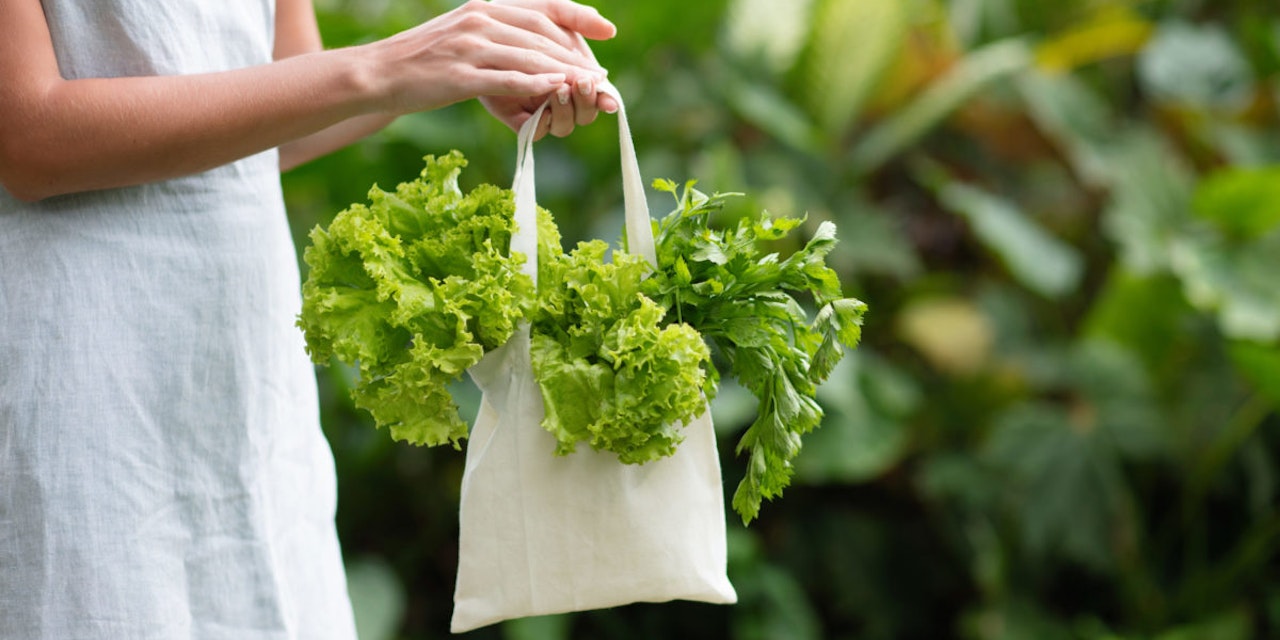Sustainable Diets: Balancing Nutrition, Health, and the Environment
Learn how to be successful with a sustainable diet.
- Published: 3/14/2024
- Categories:
- 3 min. read

- Published: 3/14/2024
- Categories:
- 3 min. read
Adopting a sustainable diet can offer numerous environmental, social, and health benefits. But when shifting to a sustainable way of eating, it's also important to plan ahead and choose foods that are both good for your body and the environment. Learn how to be successful with a sustainable diet.
Sustainable diet benefits
Sustainable diets offer many benefits including personal, environmental, social, and economic well-being. They prioritize foods that are produced using methods that minimize negative environmental impacts, such as reducing greenhouse gas emissions, conserving water and soil, and preserving biodiversity. Sustainable diets also typically focus on plant-based foods, which have been shown to have lower greenhouse gas emissions by about 50% less than diets rich in animal products (1).
A sustainable diet is also good for your health because it emphasizes whole, minimally processed foods that are rich in nutrients. Prioritizing fruits, vegetables, whole grains, legumes, nuts, and seeds, may help lower your risk of chronic diseases such as obesity, heart disease, type 2 diabetes, and certain types of cancer (2).
Overcoming challenges of a sustainable diet
While adopting a diet based on sustainable eating can bring numerous benefits, it’s important to watch for these potential challenges or risks:
Inadequate nutrition
Some sustainable eating patterns, such as vegan or vegetarian diets, may require some planning to ensure adequate intake of essential nutrients like protein, iron, calcium, and vitamin B12. For example, one study showed that when three dairy products, such as milk or cheese, were substituted with alternative dairy per day, the participants were out at risk for iodine deficiency (3). To ensure you’re getting the right amount of nutrients, check with a doctor or dietitian and try a comprehensive nutrition app like Lifesum.
Access to sustainable ingredients
Access to sustainably produced foods can vary depending on geographical location, financial status, and availability of local resources. In some cases, organic or ethically sourced foods may be more expensive or less accessible, posing barriers to a sustainable diet. To save on cost, consider making your own sustainable foods at home like pickled foods.
Planning time
Factors such as meal planning, portion control, and proper food storage techniques require time, effort, and knowledge, which may pose obstacles if you have a busy schedule. However, there are lots of tips and tricks to make sustainable eating easier, such as from Lifesum’s in-house chef: Sustainable Cooking: Tips from Our in-House Chef.
Environmental impact of alternative foods
Plant-based and alternative protein foods are often promoted as more environmentally friendly options, yet sometimes the way they are produced still have environmental consequences, such as water usage, land use change, and greenhouse gas emissions.
Plant-based meat alternatives are often processed, increasing the production of synthetic ingredients, packaging materials, and mass-produced crops. Plant-based substitutes commonly rely on ingredients like soy, corn, and wheat, which are also frequently genetically modified, which also have an impact on the environment (4).
Greenwashing
Greenwashing is the term used to describe when manufacturers convey misleading environmentally friendly production methods through statements or green-themed packaging (5). This can include making exaggerated or false claims about the environmental benefits of products, such as stating something is “natural” when many of the ingredients are processed. Make healthier choices with: 5 easy tips to eat less ultra-processed foods.
Go whole for your health and the environment
Whole foods, especially plant-based options, tend to have lower greenhouse gas emissions compared to animal products and highly processed foods. Whole foods are rich in essential nutrients, vitamins, minerals, antioxidants, and dietary fiber, which are beneficial for overall health and well-being. For a wholefood based plan that’s specifically designed to your personal goals and also helps the environment, try Lifesum's Climatarian Diet!
5 references (hide)
All of the content and media on Lifesum is created and published for information purposes only. It is not intended to be used as a substitute for medical advice or treatment. Users should always consult with a doctor or other health care professional for medical advice. If you have or think you are at risk of developing an eating disorder, do not use the Lifesum app and seek immediate medical help.